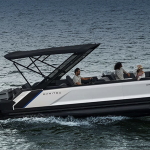Outdoor Industry Association (OIA) reiterated its request that the United States and Vietnamese governments pursue a balanced approach as they complete negotiations on the Trans-Pacific Partnership (TPP). If completed, the TPP will be one of the largest trade agreements in U.S. history and have a significant impact on the outdoor industry with commercially meaningful benefits for importers, domestic manufacturers and retailers.
OIA recently presented the U.S. Trade Representative (USTR), the U.S. Department of Commerce (DOC) and negotiators representing the Socialist Republic of Vietnam – a TPP partner country – with proposals for outdoor apparel and footwear. OIA, in close consultation with outdoor companies, presented a list of outdoor products that should receive immediate tariff phase-outs and flexible country of origin rules when TPP goes into effect. OIA’s request also included a list of outdoor products that are manufactured in the United States and should receive maximum protections, such as long tariff phase-outs and strict rules of origin, including “yarn forward” for apparel and regional value content, or the “NAFTA rule,” for footwear.
“We have sought to be helpful to the administration as they negotiate the TPP and our proposal reflects the balanced approach we pursue in all of our international trade initiatives,” said Frank Hugelmeyer, OIA’s president and CEO. “We worked closely with a broad spectrum of companies, both importers and domestic manufacturers, to identify areas that would maximize benefits for the outdoor industry in the TPP, while providing adequate transitions for those companies that make their products in the United States.”
The TPP negotiations are nearing the final stage, with a goal of concluding the agreement by the end of this year. The agreement would then move to the U.S. Congress and the partner countries’ legislative bodies for ratification.
“OIA has been focused on the apparel and footwear areas because they draw some of the highest tariff rates and we are trying to maximum benefits,” says Alex Boiam, OIA senior director of governmental affairs. “The treaty will impact all industrial goods including the hunting and fishing category. Rods, reels and other hunt and fish products will be governed by a general industrialized goods market access agreement.”
“Eventually manufacturers who export products will eventually get duty free access to robust sportsman’s markets like Australia, Peru, Chile and Japan.” says Boiam.















